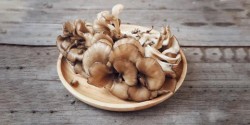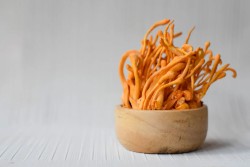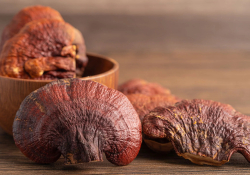A Guide To The Best Mushroom Nootropics

They are generally safe, but they can cause side effects like digestive issues or allergic reactions in some individuals. For more substantial cognitive effects, prescription nootropics like Modafinil and Armodafinil are alternatives but should be used under medical supervision.
Mushroom nootropics are the key to uplifting your health and overall well-being. Although you might be familiar with the benefits of mushrooms, mushroom nootropics provide supportive effects.
Keep reading this blog to understand different mushroom nootropics and the potential benefits they provide to your body to support brain health, mood, stability, and overall well-being.
What Are Nootropics?
Nootropics are a group of substances that may help boost brain performance. They are sometimes called memory-enhancing substances or cognition enhancers.
Nootropics are available over the counter or with a prescription. Prescription nootropics are medicines that have stimulant effects. Some of the most well-known prescription nootropics are Modvigil (Modafinil) and Artvigil (Armodafinil).
Nonprescription substances that can help enhance cognitive performance, such as caffeine, mushrooms, and creatine, are also considered nootropics.
The use of nootropics is becoming more popular among certain groups, such as students, to boost attention, memory, and other cognitive functions [1].
What Are Mushroom Nootropics?

Mushroom nootropics are mushrooms that have been shown to provide support for brain health and cognition. Mushrooms have been used for a long time in the traditional medicine system for their health-promoting benefits.
Their mycelium (the underground structure) and fruiting body (the stem and the cap of the mushroom) are rich in bioactive compounds such as β-glucans and other polysaccharides, vitamins, fatty minerals, terpenes, and steroids that can support several health aspects of humans [2].
Benefits of Mushroom Nootropics
Some of the notable benefits of mushroom nootropics are [3] –
- Combats neuroinflammation, which can result in brain degradation.
- Stimulates nerve cell growth and repair.
- May increase oxygen uptake in the brain and body, promoting healthy functioning.
- Mimics the action of serotonin in the brain to sustain and regulate sleep and mood.
- It could help in mood stabilization, which is a proven element influencing brain health.
The Best Mushroom Nootropics
About 270 species of edible mushrooms have been researched and tested as providing therapeutic benefits.
Currently, only 6 mushroom species have been identified with evidence to work as a nootropic and benefit your brain.

Lion’s Mane Mushroom
Lion’s Mane Mushroom is an ancient Chinese remedy for improving mental functions and overall health.
Lion’s Mane is said to have been used as a tea by Buddhist monks for thousands of years to enhance brain power and heighten their ability to focus during meditation.
Lion’s Mane stimulates enzyme production that releases NGF(Nerve Growth Factor). In a Kuala Lumpur study done in 2013, researchers showed that Lion’s Mane extract induced NGF synthesis and promoted neurite outgrowth.
NGF helps repair neurons in your brain and boosts the growth of new neurons and the regeneration of lost nerve cells. This helps in better memory and learning.

Maitake
The Maitake mushroom is an edible medicinal mushroom native to northeastern Japan. It has a rippling appearance with no caps and looks like dancing butterflies. Its name has been derived from the Japanese words Mai (dance) and take (mushroom) [4].
This mushroom has shown great promise for brain health, especially in enhancing thinking and protection against memory problems.
Research in 2019 explored how the extracts of Maitake mushroom could help memory and learning. They found that this extract improved these functions effectively. These improvements are partly thanks to the mushroom’s effect on a brain area crucial for memory called the hippocampus. The study suggests that Maitake might do this by increasing the levels of two pivotal brain substances:
Brain-Derived Neurotrophic Factor (BDNF): This protein helps brain cells stay healthy, grow, and communicate. It’s also crucial for remembering and learning.
α-Amino-3-Hydroxy-5-Methyl-4-Isoxazolepropionic Acid Receptor (AMPAR): These are receptors that help brain cells communicate quickly and are essential for brain plasticity, the brain’s ability to change and adapt, which is important for forming memories and learning.
The study also highlights Maitake’s role in protecting the brain, a significant finding considering the increase in neurodegenerative conditions like Alzheimer’s. Maitake helps by preventing damage to brain cells in the hippocampus and supporting vital brain signaling pathways.
Maitake’s benefits for the brain involve various actions. It modifies how brain cells signal to each other, boosting neurotrophic factors like BDNF and protecting against oxidative stress. The boost in BDNF is essential for neuroplasticity, allowing the brain to make new connections. The increase in AMPAR expression is vital for synaptic transmission and plasticity, fundamental processes for memory and learning.

Chaga
Chaga mushrooms are a type of fungus that grows on the bark of birch trees in cold climates, such as Russia, Northern Europe, Alaska, and Korea.
Chaga mushrooms have been used to inhibit cancer progression, reduce inflammation, and improve liver function.
Preliminary studies indicate that Chaga mushrooms may have nootropic effects, such as increased cognitive function, including improved concentration and memory. Chaga may also have the potential to inhibit the production of beta-amyloid, a substance associated with Alzheimer’s disease, and enhance the activity of acetylcholine, a neurotransmitter linked to learning and memory [5].

Cordyceps
Cordyceps grows as a parasitic fungus on caterpillars. These mushrooms have been used in traditional Chinese medicine to treat fatigue, kidney disease, and respiratory disease.
Cognitive benefits of these mushrooms include the potential prevention of conditions of age-related decline, like dementia, likely due to their capacity for neuroprotection. Studies have shown the neuroprotective properties of this mushroom in animal studies, stimulating increased cell density through anti-inflammatory and antioxidant properties. In a therapeutic sense, neuroprotective substances can prevent cell dysfunction, death, and degeneration in the brain. Research also suggests that cordyceps can increase cerebral blood flow, which may help to improve learning and memory [6].
The bioactive compounds present in cordyceps, cordycepin, have demonstrated abilities to support immunity and deliver anti-inflammatory activity. Cordycepin has also shown potential in alleviating a few symptoms of neurological disorders like Parkinson’s. In addition, bioactives in this mushroom make it a powerful adaptogen, helping to improve oxygen flow throughout the body, including the brain, and supporting regulated levels of cortisol, a stress hormone [7].

Reishi
Reishi is a nootropic mushroom that has been used in traditional Chinese medicine for more than 2000 years. Unlike many mushrooms, reishi is known for medicinal purposes more than nutritional benefits, with its effects even being documented in ancient works of art and texts.
During the time of the Ming dynasty in China, the Reishi mushroom was regarded as a potent natural medicine for memory. Traditional Chinese pharmacology also looked to this mushroom to ease the mind, support respiratory health, replenish energy, and aid in dizziness.
In a 2021 study by Yin Wang and colleagues, researchers demonstrated an effect of the reishi mushroom, long held as an anecdotal truth in Chinese medicine: its ability to promote a calm state, supporting more restful and healthier sleep cycles. An extract of the reishi mushroom, when given to mice, was found to prolong sleep time, increasing sleep-promoting neurotransmitter 5-hydroxytryptamine, and promote sleep behaviors through gut bacteria and serotonin pathways.
This same neurotransmitter is also involved in improving concentration. According to Harvard Health, quality sleep makes it possible for the brain to access greater attention span, focus, and optimal thought processes.
How to Take Mushroom Nootropics?

For those who enjoy the taste of mushrooms already, cooking with these ingredients is the simplest way to boost your intake consistently and safely. Unfortunately, not all mushrooms can be used for cooking; for example, Lion’s Mane mushrooms are used in a culinary context, while Chaga is typically brewed as a tea.
These two mushrooms offer a good starting point for dietary mushroom intake, but a different way will likely be necessary for nootropic mushrooms like Cordyceps and Reishi.
Tinctures, extracts, or powders
For mushrooms that don’t fit in the recipe book, you will want to look for concentrated forms like extracts and tinctures that deliver the benefits of the mushrooms we have discussed so far.
Thankfully, these products are available for everything from Cordyceps and Lion’s Mane to Chaga, Reishi, and more. Because extracts are not measured out in pre-portioned amounts, always ensure to measure the effective serving sizes and take a cautious approach when using individual ingredients like these.
Nootropic Mushrooms Side Effects
While nootropic mushrooms are well-tolerated by most individuals, there are some potential adverse effects to be aware of, especially if consumed in large amounts or if you have specific sensitivities. Some of the side effects reported with the use of nootropic mushrooms are –
Allergic reactions: Allergic reactions with the use of nootropic mushrooms are rare but can occur. Some of the symptoms are breathing issues or rashes. Stop using it immediately if an allergic reaction appears.
Low blood sugar: Some nootropic mushrooms, such as Maitake, can lower blood sugar, so diabetic people should monitor their levels carefully.
Digestive issues: Some people may experience diarrhea, nausea, or an upset stomach, especially when consuming higher amounts.
Fatigue and drowsiness: Certain nootropic mushrooms can cause drowsiness or fatigue, so they should be consumed at appropriate times, such as in the evening.
Being aware of these side effects can help users make more informed decisions about incorporating nootropic mushrooms into their wellness routine [8].
Safety Considerations When Using Nootropics Mushroom

While mushroom nootropics are considered safe for most people, it’s crucial to approach their use with caution, especially if you are new to these supplements. Here are some safety considerations to keep in mind [8]:
Consult a Healthcare Professional.
Before incorporating mushroom nootropics into your regimen, especially in large or concentrated amounts, it’s important to talk to a healthcare professional. This is especially important for people with pre-existing health conditions, pregnant and lactating women, and those taking other medications. A healthcare provider can help you determine if mushroom nootropics are safe for you and advise on the proper dosages.
Start with a low dose.
If you are new to nootropics mushrooms, it’s a good idea to start with lower amounts to see how you react to them and adjust the dose accordingly.
Quality and sourcing
The effectiveness and safety of Mushroom nootropics greatly depend on the quality of the product you are using. Look for reputable brands that provide third-party testing to ensure their potency and purity. Some lower-quality products may lack the active compounds that give these mushrooms their cognitive-enhancing effects. Organically sourced mushrooms are often the best choice.
Best Alternatives For Nootropic Mushrooms

If you are sensitive or allergic to mushrooms, several other nootropic alternatives can support cognitive function.
If you want a significant boost in focus, energy, and mental performance, Modafinil and Armodafinil are two of the most potent options available. They work much faster and stronger than natural brain boosters like Lion’s Mane or Cordyceps mushrooms.
Modafinil and Armodafinil are prescription medications originally developed to treat narcolepsy, sleep apnea, and shift work sleep disorder. It’s now widely used off-label as a cognitive enhancer.
Modafinil and Armodafinil are available under numerous brand names such as Modalert, Modvigil, Artvigil, Waklert, and more.
However, unlike those mushrooms which are gentle and safe to take every day, Modafinil and Armodafinil are potent pharmaceutical drugs. That means they should be used responsibly under the guidance of a doctor.
When used in the right situations (like a long workday, big exam, or intense project), they can help you stay sharp, focused, and productive for hours without feeling tired.
Conclusion
Mushroom nootropics are a promising natural way that may enhance cognitive function, improve focus, boost memory, and support long-term brain health. With varieties like Chaga, Cordyceps, Reishi, and Lion’s Mane offering unique benefits, they present an exciting option for those individuals seeking to improve their mental performance naturally. However, as with any substance, it’s crucial to consider safety, potential adverse effects, and the quality of the product you are consuming.
For those who are sensitive to nootropics or want greater cognitive enhancing effects, there are several effective nootropic alternatives available, including Armodafinil and Modafinil.
FAQs
How long does lion's mane stay in your system?
Is lion's mane a nootropic?
Is ashwagandha a mushroom?
Who cannot eat Lion's mane?
References
- What are nootropics, or ‘smart drugs’? medicalnewstoday.
- Your Guide to Nootropic Mushrooms, Qualia Life.
- Our Discoveries On Mushrooms Nootropic And Their Benefits, naturesrise.
- Maitake: benefits, dosage, contraindications, Darwin Nutrition
- Nootropic Mushrooms, Soma Analytics
- Improvement of Learning and Memory Induced by Cordyceps Polypeptide Treatment and the Underlying Mechanism, NCBI
- Top 3 Nootropic Mushrooms and Their Benefits, curemushrooms
- What Are Nootropic Mushrooms? Discover The Benefits, Flowblend
